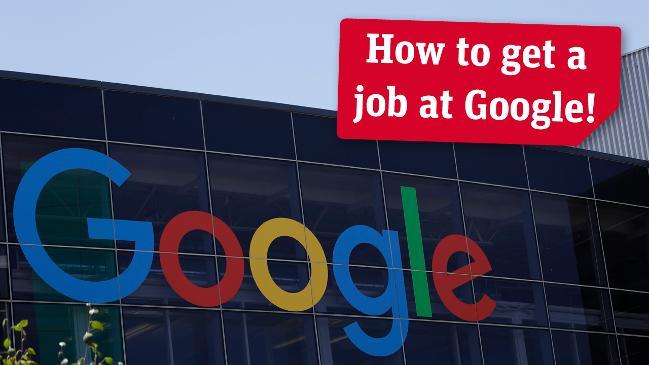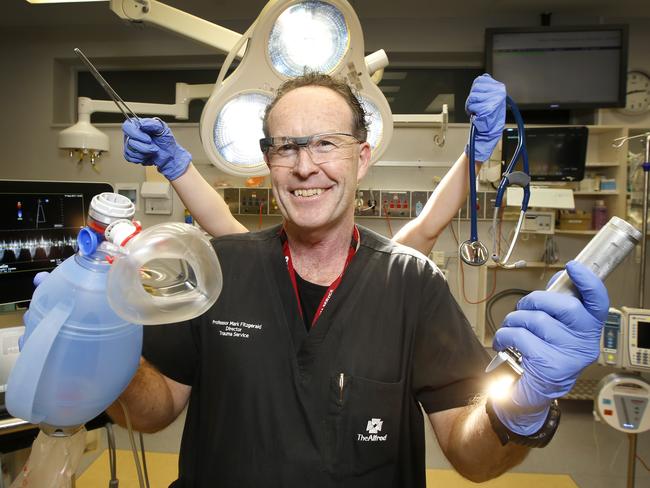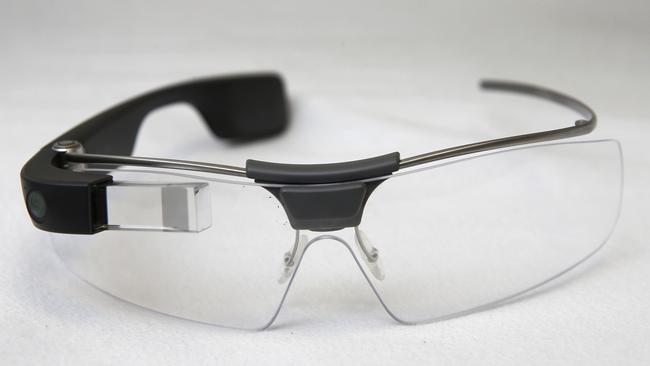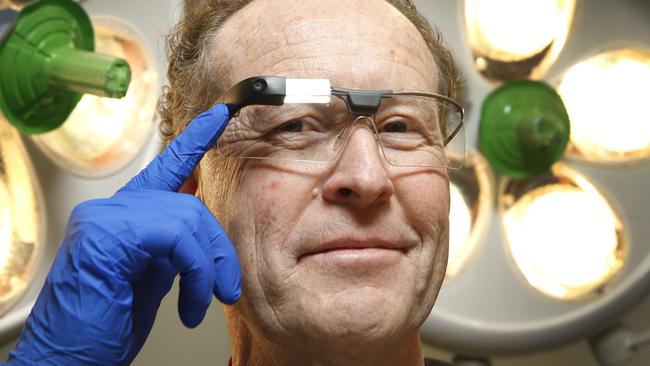Google glasses: Melbourne trauma doctors develop new hi-tech tool for emergency departments
LIFE-and-death decisions in the emergency department are soon to become hands-free in a hi-tech project that doctors hope will improve patient safety and save lives.

VIC News
Don't miss out on the headlines from VIC News. Followed categories will be added to My News.
- Day procedure’s total repair of the heart
- Alfred docs give hope to upper limb amputees
- Peer support to help near-death survivors
IN A hospital trauma department, the head emergency doctor will wear a pair of hi-tech glasses that will see and note everything he or she sees.
The specs will pick up patient statistics, case notes and injures before an automated voice will audibly confirm the diagnosis and suggest procedures or drugs.
The whole time, the doctor can see the patient’s vital signs displayed on the lens of the glasses.
This is the future of emergency medicine, to be rolled out in Melbourne’s leading trauma hospital.

Doctors from The Alfred’s National Trauma Research Institute have teamed with Dialog Information Technology to develop a new version of Google Glass — the software giant’s “wearable technology” spectacles, which emerged in 2014 — to help revolutionise medical care.
Doctors involved in the project hope the glasses will improve patient safety and save lives.
Professor Mark Fitzgerald, project leader and director of trauma services, said the device would connect to the hospital’s computerised decision support system, which guides emergency department staff through the first hour of trauma management.

This system, rolled out to hospitals around the world, has been shown to reduce errors during initial resuscitation and result in fewer blood transfusions.
“When someone really sick comes in and gets resuscitated, there is a whole lot of stuff happening with the team,” Prof Fitzgerald said.
“You have to make a lot of decisions. It’s easy to have errors of omission. This real-time tracking system makes sure you don’t make errors.’’
VEGE-MITE LIFT YOUR MOOD, STUDY FINDS
WHY MEN RISK MISSING OUT ON FATHERHOOD

Prof Fitzgerald said the device would allow leading specialists to connect with hospitals in regional areas or developing countries to provide real-time advice by seeing what that doctor saw, which would “ultimately save lives”.
“They do this in other industries, like aviation, but they’ve got set pieces of equipment. Human biology is very different. It’s been harder to generate software systems for this,” he said.
“The sick person comes in and we can interface the people conducting resuscitation to the machine, the computer gives advice, and remote experts who have seen thousands of these cases before can give oversight — you’ve got the dream team.”
The prototype will be tested in the emergency department early next year.


